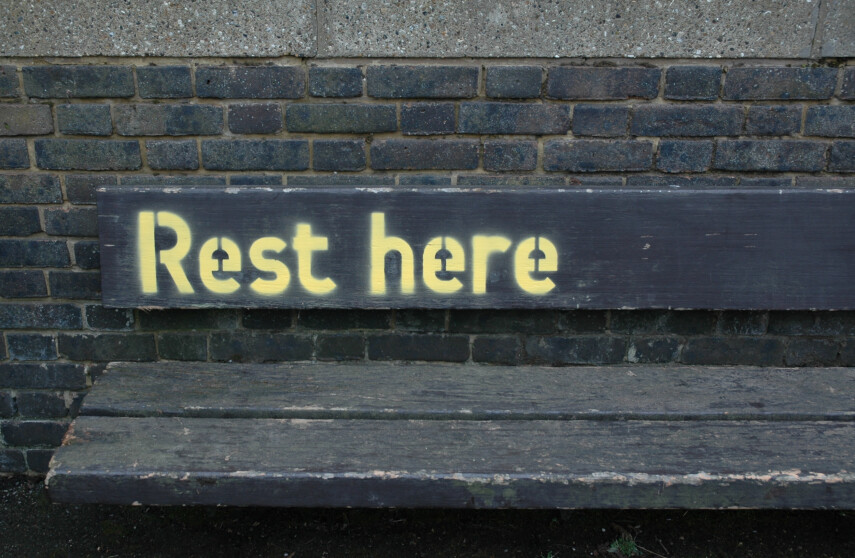How to not feel like a rookie on Easter

Spandex, Foam Rollers and Top 40 music have more to do with Easter than you think. For years I worked as a personal trainer in various gyms and always knew that the first week of the year was our Super Bowl. In fact, there’s the potential for a gym to make enough money in the first six weeks of the year to pay for almost all of the overhead the remaining 11 months. Most of what the gym makes after Valentine's day is profit. Crazy.
People coming through the door in those timid weeks all looked pretty much the same - a bit lost, insecure, hesitant, regretful yet hopeful, and trying very hard to not look like a rookie. Swearing to make “this year different”, they’d use Jan. 1 as a rally point to see their life changed. For weeks they’d give it their best and the place would be packed, but by Valentine’s Day, it’s the same old gym rats left standing.
I feel like New Year’s is to gym attendance as Easter is to church attendance. People come a bit lost, insecure, hesitant, hopeful, and wondering if anyone can tell that they are new.
Most people I meet as a pastor that attend an Easter service after a long lapsed period are trying to - like at the gym - see their life changed. Easter is a rally point for many. If this is you, I have some pointers to make it easier for you to not feel so much like a rookie and be able to relax and feel at home in any church.
- Like at the gym, most people have no idea that you are new. Obviously if you are in a smaller church or church plant, that might be different, but most churches over 120 people or so won’t detect your attendance record. Just walk in like you own the place.
- Like a gym, there is really no need to dress up. Unspoken dress codes vary between church traditions, but most today won’t look like the churches you grew up in as a child. If you aimed at what you’d wear to work or date night, you’d be erring on overdressing, not under-dressing.
- Like at a gym, the main thing is still the main thing even if stuff looks different. You may notice new “stuff”, like better projectors and church apps. Graphics and technology may be different than you remember, but Jesus is still the King, His good news is still our fascination, and connecting is still our desire.
- Like a gym, after the first visit you can expect follow-up contact. Most churches will probably ask you to fill out a connect card of some kind. This isn’t to troll you but to serve you. If you don’t want to - don’t. If you do, you’ll likely get contacted by someone nervously trying to help.
- Like at a gym, a good percentage of the people around you on will be just like you, non-average or new attenders wondering if people can see that they are too a rookie. You fit in much more than you actually know. They probably tried on different outfits that morning and have butterflies and awkwardness as much as you do.
- The service will likely be shorter than normal. As a pastor I can tell you most pastors aim the service to go about 50-60% as long as normal. This is to make space for your family time. This is a way for churches to be hospitable and recognize your time constraints.
Unlike a gym, you won’t have to wipe the equipment after you use it, or hear men grunting and throwing things. Ke$ha will not be the music choice, and you really shouldn’t wear spandex - even if you’re feelin it.
Attending a new church is intimidating enough, but attending one when it’s been since Christmas or last Easter is something different entirely. I know I speak for other pastors when I say, we look forward to seeing you and hope you feel welcome.

